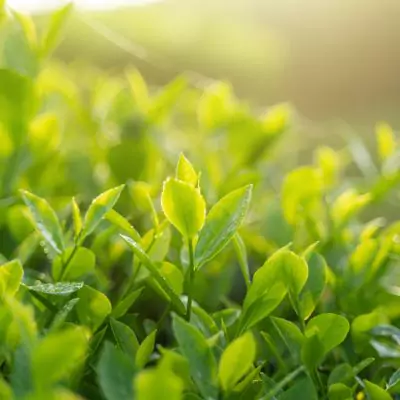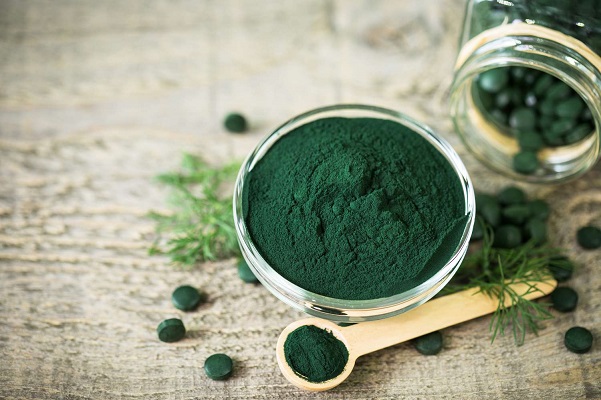On This Page
Overview
Green tea is a potent beverage that you should get to know this monsoon because it is packed with antioxidants and many necessary minerals. The dried, unoxidized leaves of the Camellia Sinensis plant are used to make green tea. Green tea has a gentle greenish-yellow hue and a sweet aroma when it is brewed. Due to its many health advantages, it is becoming more and more popular all over the world. One of the richest sources of polyphenols, or antioxidants, in nature, is green tea, notably tannins, theaflavins, catechins, and flavonoids. These antioxidants are well-known for their ability to reduce inflammation, provide pain relief, and fight cancer. Green tea is also well known for helping people lose weight, controlling their blood sugar, and acting as a photoprotective agent to protect their skin, stop tooth decay, and increase bone density.
Synonyms of Green Tea
- Camellia Sinensis
- Chinese tea
- Green sencha tea
- Japanese tea
- Yame tea
Nutrition Facts of Green Tea
| Energy: | 0.96 kcal |
| Carbohydrates: | 0 g |
| Protein: | 0.2 g |
| Fat: | 0 g |
Phytochemical Constituents of Green Tea
- Catechins
- Flavonols
- Oxy Aromatic acids
Therapeutic Uses of Green Tea
- Supports weight loss
Many people drink green tea, which is frequently promoted as a weight-loss beverage, after consuming high-calorie foods in the hopes that it may prevent weight gain. The key ingredient in green tea, epigallocatechin gallate, or EGCG, helps with weight loss. This increases metabolism and aids in the reduction of belly fat.
- Combats Cancer
Green tea’s polyphenols lower inflammation and support the body’s fight against cancer.
- Enhances brain activity
Caffeine is also present in green tea. Our Central Nervous System responds to it as a stimulant. We get alert from caffeine, which is also known to enhance memory, learning, performance, and coordination.
- Improves Oral Health
Green tea contains catechins, which have antibacterial properties and shield our bodies from numerous illnesses. Green tea use also lessens halitosis (bad breath)
Home Remedies of Green Tea
- Prevent Dental Decay
The development of halitosis, or unpleasant breath, can be facilitated by cavities. Take a cup of green tea first. You can prevent dental decay with just a few gargles of green tea.
- Treat Eczema
Eczema can be treated by combining green tea with a carrier oil, such as olive oil.
- Act as a Moisturizer
Make a mix of green tea and pomegranate to make a juice. This juice is used as an anti-aging toner. Additionally, you can use this green tea toner throughout the day to add more moisture.
- Reduce Inflammation
To treat chapped skin and reduce inflammation, combine coconut oil, green tea, and shea butter into a thick paste and then apply it on your affected area.

Have A Health Issue?
Consult Online
- Dr. Sahil Gupta (B.A.M.S., M.H.A.)
Ayurvedic Allergy Specialist
CEO & Founder of IAFA®
Ayurvedic Aspects of Green Tea
According to Ayurveda, Green tea possesses Deepan (appetizer) and Pachan (digestive) characteristics, which are said to help with digestion and weight loss. It aids in retaining the suppleness and firmness of the skin because of its Kshaya (astringent) characteristics.
Green tea is also advantageous for healthy skin. Due to its antioxidant properties, it promotes healthier blood circulation and slows down premature aging. Applying green tea polyphenol-based skin care products topically can help you get smooth, supple, and younger-looking skin. Due to its anti-inflammatory and stress-inhibitory qualities, green tea can also help reduce hair loss, dandruff, balding, and psoriasis.
Daily Dose: Do not surpass your green tea consumption of more than 3 cups in a day. For the best health advantages, 2 to 3 cups are advised.
Side Effects of Green Tea
- Migraine: Due to its caffeine content, green tea can give some people headaches. It is recommended for migraine sufferers to drink green tea occasionally.
- Insomnia: Despite having less caffeine than black tea or coffee, green tea might still interfere with sleep if you are allergic to caffeine. In such a scenario, don’t consume more than two cups of it, and stay away from late-night consumption.
- Harmful during pregnancy: Overconsumption of green tea during pregnancy may be harmful to both the mother and the fetus.
- Hazardous for Liver: Overindulging in green tea might have negative effects and harm the liver.
Conclusion
Goji berries are loaded with healthy ingredients. Goji berries can cause a variety of negative effects, though, if ingested in excess. Goji berries can have a variety of negative side effects, including diarrhea and possibly lowering blood sugar. Before incorporating it into your diet, take advice from your health experts. If you face goji berry allergies you can consult Dr. Gupta at IAFA® to get a natural cure of any type of illness.
References
- https://fdc.nal.usda.gov/fdc-app.html#/food-details/173032/nutrients
- https://www.ncbi.nlm.nih.gov/pmc/articles/PMC6343173/









